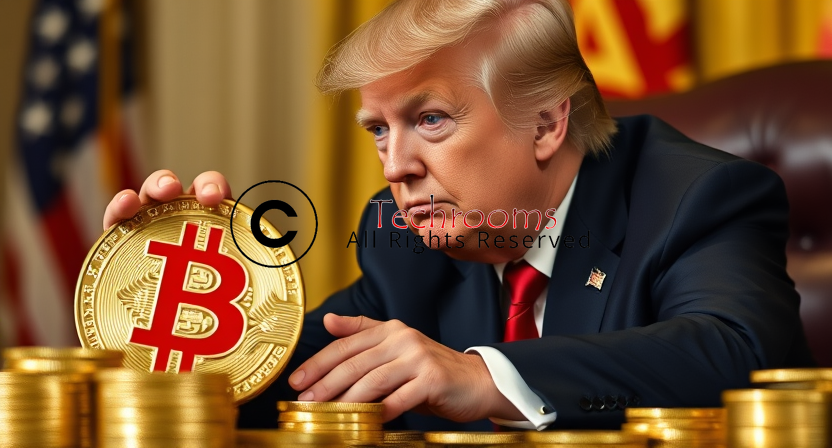As former President Donald Trump prepares to return to the White House on January 20, speculation is rife that his first day will be marked by executive orders aimed at reshaping the landscape of cryptocurrency regulation in the United States.
According to a report from The Washington Post dated January 13, Trump’s administration is likely to prioritize actions addressing crypto de-banking and revising a contentious accounting policy affecting banks that deal with digital currencies.
Key Changes Anticipated
One of the notable changes may include the repeal of a regulation instituted during President Biden's term, which mandates banks to categorize cryptocurrencies as liabilities. This regulation is rooted in the Securities and Exchange Commission’s March 2022 Staff Accounting Bulletin, known as SAB 121, and has faced significant pushback from the cryptocurrency sector.
The incoming Trump administration reportedly views the reversal of SAB 121 as a priority, with insiders indicating that this move is urgent.
Concerns Over Financial Accessibility
Critics within the cryptocurrency community have long condemned the Biden administration's approach as a focused effort to undermine the industry’s ability to access traditional banking services, often termed “Operation ChokePoint 2.0.” Prominent figures in the sector have called on Trump to take swift action, including issuing crypto-related executive orders within the first 100 days of his presidency, with expectations that at least one of these orders could be implemented on his inauguration day.
In addition to policies related to cryptocurrency, Trump’s new administration is also predicted to revise several technology-related regulations. David Sack, appointed as Trump's crypto and artificial intelligence advisor, has expressed intentions to rescind Biden's 2023 AI executive order, which had faced criticism for emphasizing equity in AI technology development.
Shaping the Future of U.S. Crypto Policy
In parallel, Marc Andreessen, a well-known venture capitalist with deep ties to the tech and crypto industries, is reportedly playing a significant role in shaping the impending administration. He has been actively recruiting candidates for key government positions across technology, defense, and intelligence sectors.
During his campaign, Trump made a commitment to enhance the U.S. cryptocurrency market, including proposals for a strategic Bitcoin reserve and the reduction of regulatory barriers impacting the industry.
State Initiatives: Bitcoin Reserves on the Rise
In a related vein, states like New Hampshire and North Dakota are demonstrating increasing interest in integrating cryptocurrencies into their financial frameworks by proposing legislation to establish strategic Bitcoin reserves. This is part of a growing movement among U.S. states aiming to diversify their fiscal assets through digital currencies.
Ohio had previously explored the integration of Bitcoin into its treasury reserves, spurred by House Republican leader Derek Merrin's new bill. More recently, Texas Representative Giovanni Capriglione introduced the Texas Strategic Bitcoin Reserve Act, advocating for the state comptroller to hold Bitcoin as a reserve asset for a minimum of five years.
Furthermore, in November, Pennsylvania took a similar initiative when Representative Mike Cabell proposed allowing the state treasury to allocate up to 10% of its balance sheet to Bitcoin, highlighting the digital asset's potential as a hedge against economic instability.
Additionally, corporate entities such as MicroStrategy and Metaplanet have been expanding their Bitcoin portfolios, indicating a growing acceptance of cryptocurrency in mainstream financial practices.




